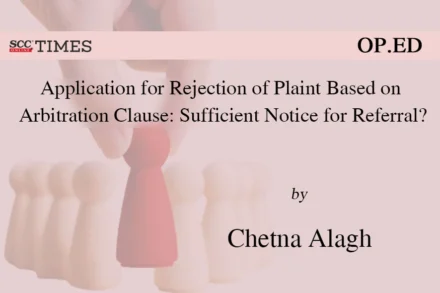
Arbitration and Conciliation Act 1996

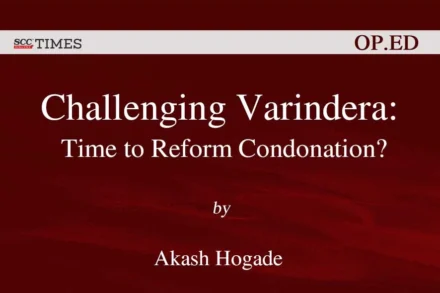
Challenging Varindera: Time to Reform Condonation?
by Akash Hogade†
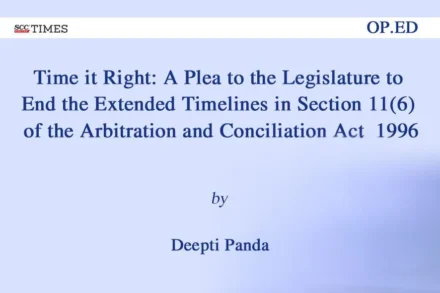

‘Appellate Court must respect Trial Court’s findings unless there is clear error/failure of justice’: Bombay HC upholds Single Judge’s order appointing Court Receiver in partnership dispute
The Single Judge in order dated 16-07-2024 held that there are enough documents proving that appellant had started construction on Virar property even though there is a status quo order, and thus, to safeguard and preserve the property, a Court Receiver needs to be appointed.

‘Section 34 of Arbitration Act cannot be used as tool for reappreciation of facts’: Delhi HC
“Section 34, quite apart from its classically limited scope, is certainly not intended to be used as a tool for a litigant to desist from participating in the arbitral proceedings, despite being fully aware thereof, and, thereafter, seek a second bite at the arbitral cherry.”

‘One business partner’s conduct detrimental to another’; Bombay HC grants interim relief u/s 9 to aggrieved partner, in absence of efficacious remedy u/s 17 of Arbitration Act, 1996
Due to the respondent 1’s brazen disregard for the status quo order, the Court in absence of a Section 17 remedy, had to grant an interim relief under Section 9 of the Arbitration and Conciliation Act, 1996.
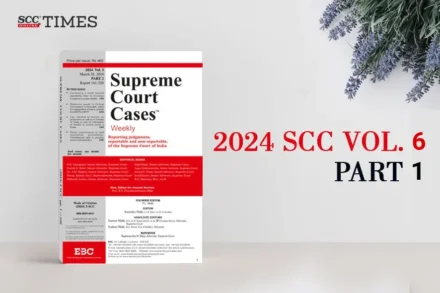
2024 SCC Vol. 6 Part 1
Arbitration and Conciliation Act, 1996 — Ss. 11 & 8 and 16 r/w S. 7: Law clarified on harmonious construction of Arbitration

‘S. 21 notice not required if claim is filed in form of counterclaim for which reference has been made by Court’; Delhi HC dismisses Arbitration Applications
Since AISPL and the ASF Group had assumed responsibility for payments to be made to SPCPL, their impleadment was necessary for a comprehensive adjudication of the matter.
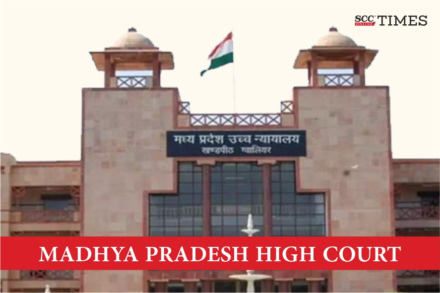
Executing Court must ascertain stamp duty payment issue before enforcement of Arbitral Award: MP High Court
The Court held that unilateral appointment of the Arbitrator without the petitioner’s consent could render the award void under Section 34 of the Arbitration and Conciliation Act, 1996
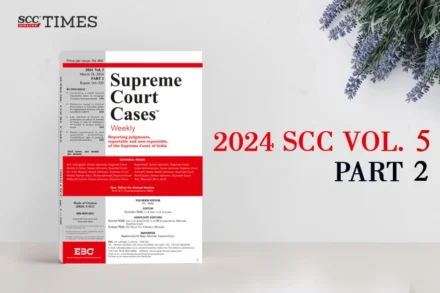
2024 SCC Vol. 5 Part 2
Arbitration and Conciliation Act, 1996 — S. 11(6) — Issue of limitation — Adjudication of, as an admissibility issue at the stage
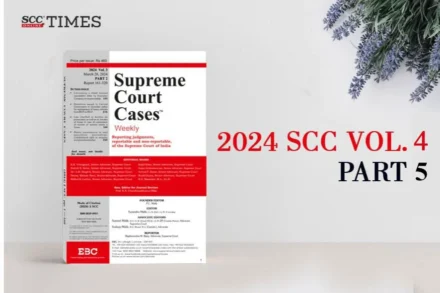
2024 SCC Vol. 4 Part 5
Arbitration and Conciliation Act, 1996 — Ss. 34 and 37 r/w Ss. 2(4) and 16 — Jurisdiction of arbitrator to adjudicate under
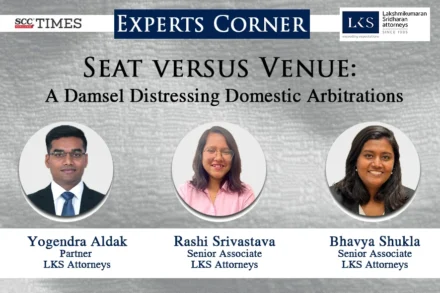
Seat versus Venue: A Damsel Distressing Domestic Arbitrations
by Yogendra Aldak†, Rashi Srivastava†† and Bhavya Shukla†††
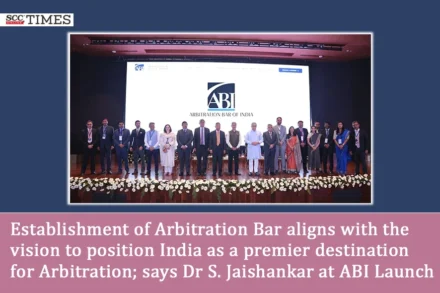
Establishment of Arbitration Bar aligns with the vision to position India as a premier destination for Arbitration; says Dr S. Jaishankar at ABI Launch
The legal landscape of India witnessed a momentous occasion with the official inauguration of the Arbitration Bar of India (ABI) on May 11, 2024, at Bharat Mandapam, New Delhi.

Intention of parties can be construed from the correspondence exchanged between them: Delhi HC appoints Justice A.K. Sikri (Retd.) as a Sole Arbitrator
The Court opined that all nine contracts are related to same project and if it is accepted that there is an Arbitration Clause only in five contracts, then parties will have to be relegated to civil proceedings, which will lead to multiplicity of disputes, delay in adjudication and possibility of conflicting rulings.
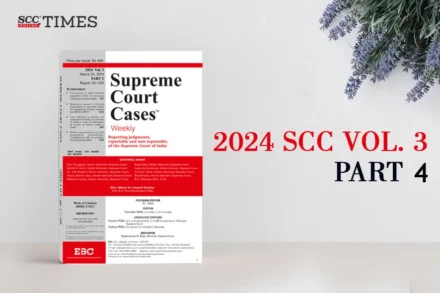
2024 SCC Vol. 3 Part 4
Arbitration and Conciliation Act, 1996 — Ss. 34 and 5: Principles summarised re scope of interference by Court under S. 34. Supervisory,

‘Objections under S. 47 CPC are applicable only to execution of decrees not maintainable against arbitral awards’; Allahabad HC imposes Rs 5 lakhs cost on State
“Imposition of costs in cases of frivolous litigation is essential to maintain the integrity, efficiency, and fairness of the judicial system. By deterring abuse of the legal process, promoting judicial efficiency, and upholding the principles of fairness and justice, cost imposition serves to safeguard the rights of individuals, protect the integrity of the legal system, and bolster public confidence in the administration of justice.”
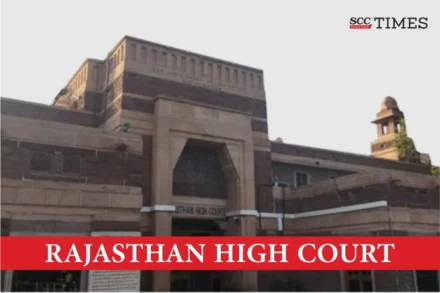
Rajasthan High Court entertains appeal despite prima facie view on non-maintainability under MSMED Act
Rajasthan High Court decided to entertain the appeal due to the significant question of the application’s maintainability.
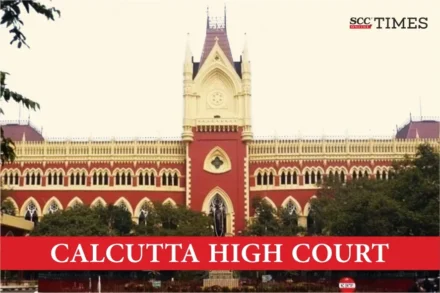
Calcutta High Court determines applicable interest rate based on amended Section 31(7)(b) of Arbitration and Conciliation Act
Calcutta High Court applied the amended Section 31(7)(b) for determining the interest rate after considering the silence of the Award on the interest issue and the subsequent execution proceedings filed after the 2016 amendment.
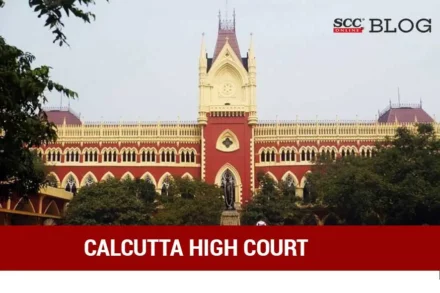
Calcutta High Court upholds Arbitration Clause; directs parties to resolve dispute arising from distributor agreement through Arbitration
The Calcutta High Court emphasised on the doctrine of “kompetenz-kompetenz”, granting the Arbitral Tribunal the authority to rule on its own jurisdiction, including the existence and validity of the arbitration agreement.

Calcutta High Court rejects time-barred claim in arbitration dispute over alleged failure to deliver signed copy of award
The Calcutta High Court opined that the onus is on the award-holder to provide irrefutable evidence of delivery, and any doubt in this regard favors the award-debtor.


